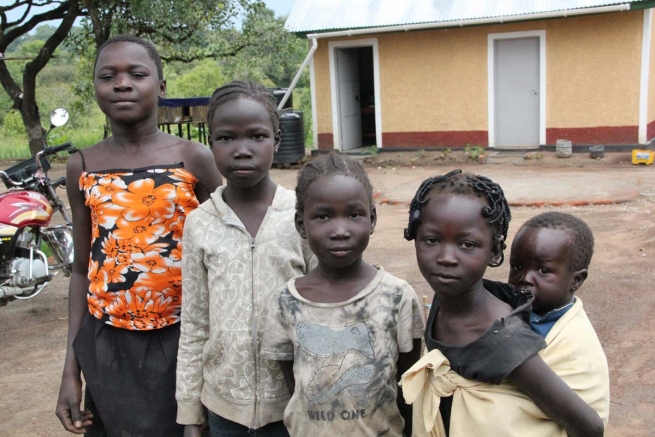The Salesians arrived at the Palabek refugee settlement in June last year, the only one of the nearly 20 similar centers in Uganda that is continuing to welcome refugees. Two months earlier, the center had begun to receive the South Sudanese fleeing the war and who had managed to reach the border. In an area of 400 square kilometers, the government of Uganda and the United Nations, through the refugee agency (UNHCR), were organizing an open camp in which each family was entrusted with 30 square meters of building materials, a simple dwelling and the tools to cultivate a small garden on that territory.
At the beginning, the precariousness of the situation forced the Salesians to live hosted in huts with the refugees, but little by little they built simple rooms, sanitation and access to water, small structures so the refugees could gather, and various chapels and schools for children distributed across the camp. The Salesians are the only ones who work in the Palabek refugee camp and permanently reside there.
Just a month ago, the Salesians organized community life. There are seven Salesians who belong to the missionary community: two from the D.R. Congo, one from Congo Brazzaville, three from India and one from Venezuela. "The work done by Salesians is an eminently pastoral task. There are eleven chapels in the camp, where Mass is celebrated and training is offered to young people and families," says Fr Lasarte.
Where there are Salesians, education is always a priority. In this settlement, the Salesian commitment to the education and accompaniment of refugees has made Don Bosco a point of reference in the campo and at the same time a moral authority. In total, over 700 children are accompanied in their schools and more than 700 families in the camp.
Uganda follows an open and generous policy towards refugees, hosting almost 1.5 million. Everyone receives a work, education and health permit for free and is one of the countries that receives the largest number of refugees in the world.


